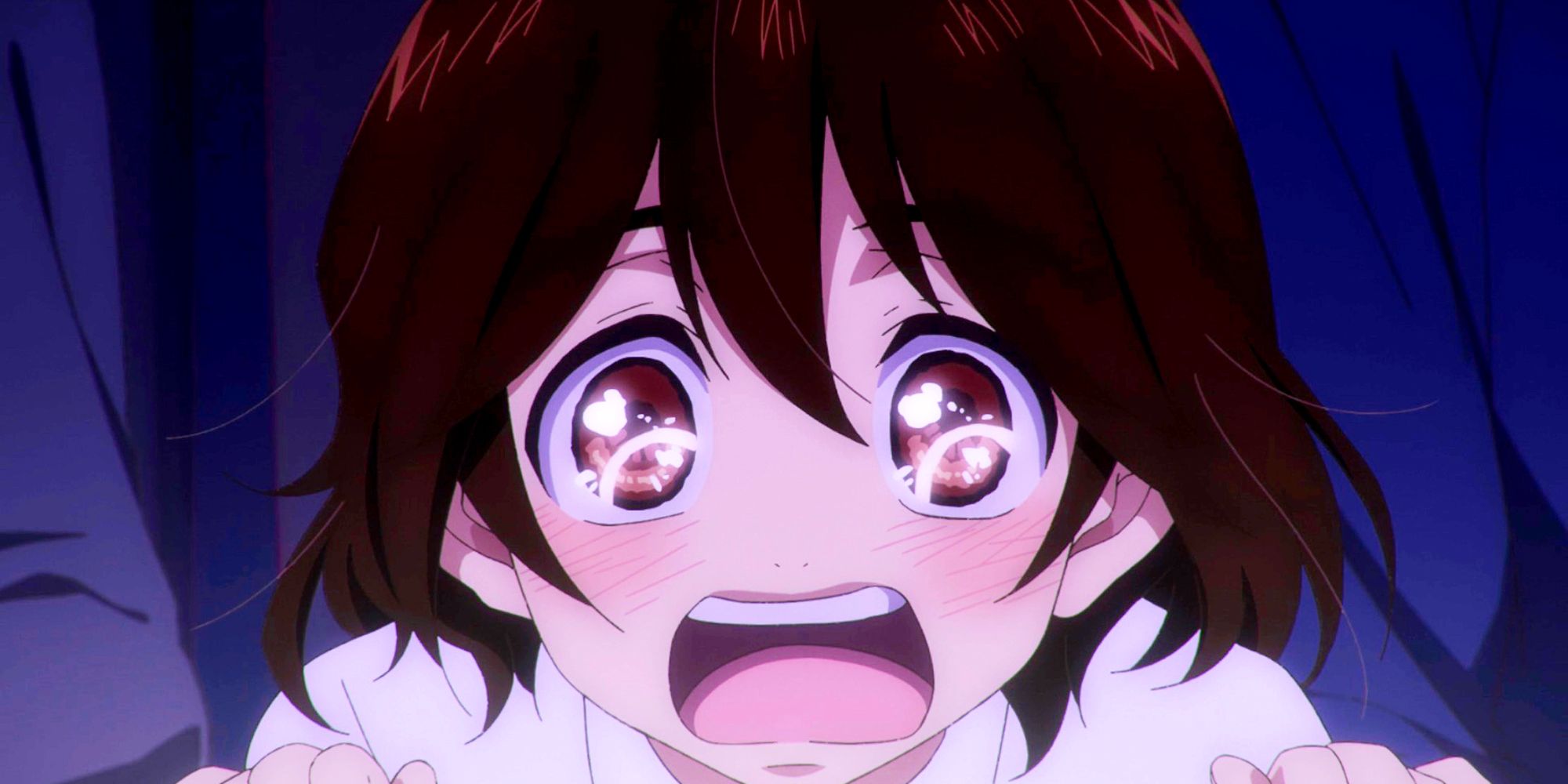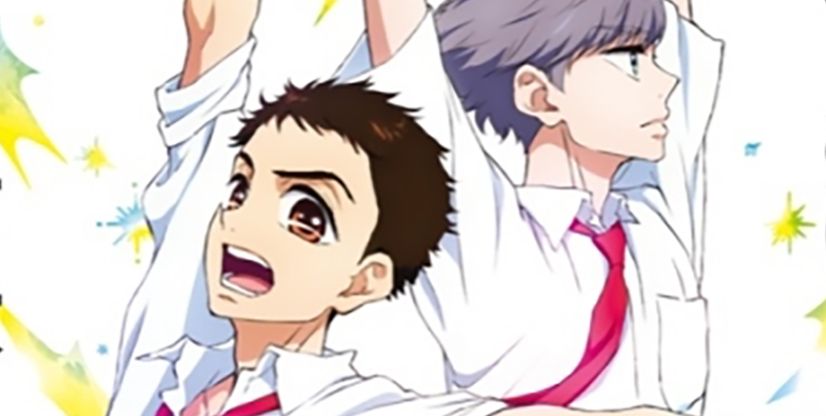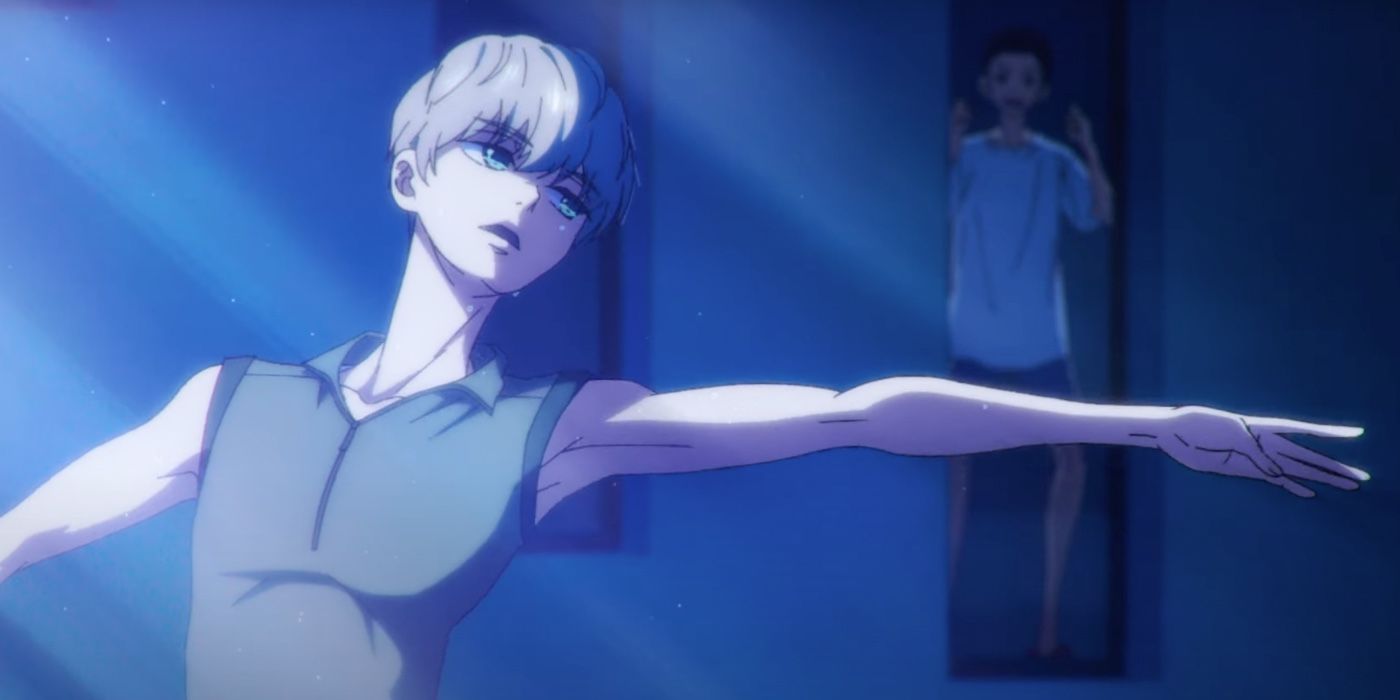The following contains spoilers for Dance Dance Danseur Episode 1, "There's No Way I'm Doing That Ballet Thing!," now streaming on Crunchyroll.
Five years after Yuri!!! on Ice placed MAPPA on the sports anime scene, the studio is back at it with this spring season's sports drama Dance Dance Danseur, taking things off the ice and placing ballet under the spotlight. Once again, the studio is commendable for not just focusing on the sport itself but also the culture surrounding it, both positive and negative.
However, while Yuri!!! on Ice was a show focused on individual struggles with depression, isolation and abandonment, Dance Dance Danseur looks at how society influences the individual, and in this particular case, how it enforces gender roles and how these come into play in the world of ballet. Dance Dance Danseur has thus far proved predictable in the way it handles the struggle to present as hypermasculine in a society where men pursuing 'feminine' hobbies are ridiculed for their choices -- but even if it's a story that's been told before, it's still one worth repeating.
Hypermasculinity and toxic masculinity are topics addressed in many genres of anime, often appearing in unexpected ways. For example, although the men of Dragon Ball are peak masculine when it comes to athletic performance, they are often devoted husbands and fathers who view that role as their most important, and young shonen protagonists such as Kamado Tanjiro from Demon Slayer challenge those who treat others with toxicity and often extend a chance at negotiating with an enemy before fighting.
These male characters embody kindness and empathy where one would expect thoughtless violence. When it comes to Dance Dance Danseur, Marao Jumpei is introduced to ballet at a young age and is enthusiastic about pursuing it. His father questions that decision but backs down when he sees how happy ballet makes his son.
When Jumpei's father dies, Jumpei's uncle tells him that he is now "the man of the house," which shifts Jumpei's trajectory down a more traditionally masculine path -- one where he focuses on martial arts and leaves ballet behind. When given the chance to start ballet once more, he is faced with expectations that convince him that ballet is not manly enough and that he mustn't pursue his passion. He has a hypermasculine appearance to keep up with at school and participates in both soccer and martial arts.
Still, he can't keep himself from visiting the new ballet studio that gives him the practice space he's always needed, and it becomes clear in Episode 1 that Jumpei's desire to do ballet won't collide with his own personal bias, but rather with those who will ridicule him for his decision, such as his classmates and even possibly his family members. Jumpei's decision to pursue ballet is not really a surprise, and many pieces of the story to come are predictable.
Jumpei will have to ultimately reveal the fact he does ballet and will already have to choose between soccer and ballet as soon as Episode 2, bringing the issue of his masculine image to the high school setting very early in the narrative. Any public performance puts his masculine image at risk as well, and there's also the issue of a rivalry with a fellow male dancer that will undoubtedly rear its head eventually.
This rivalry has the potential to make Jumpei's struggle with masculinity a little more interesting, with both intending to become an 'alpha male' in a space that society has deemed feminine. Pressure from both inside and outside the world of ballet about how to act appropriately masculine has the chance to truly examine the stress put on teenage boys to conform to traditional views of manliness, and the presence of Godai Miyako, the female lead, could lead to an interesting study of how that view of the alpha male damages women in society as well, especially if she ends up caught in the middle.
While hardly the most nuanced introduction to a study on gender roles, Dance Dance Danseur still has the potential to be an interesting take on the individual versus society when it comes to hypermasculinity and how men -- and young boys in particular -- are influenced by words whose impact might not even be considered. For boys, realizing that being men of the house and pursuing their interests aren't mutually exclusive could have real-world consequences on reducing toxic masculinity, and if media such as Dance Dance Danseur can be a piece of this, that makes it valuable, no matter how many times the same story is repeated.



